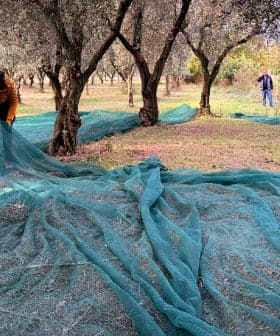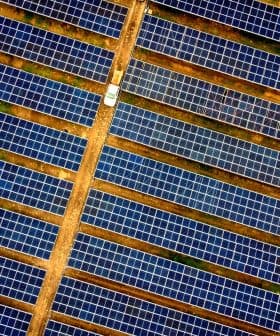Scientists Want a 'Climate Label' Added to Europe's Nutri-Score
Germany’s scientific advisory board on agricultural policy, food and consumer health protection is calling for food sold in Europe to be labeled for both nutritional content and greenhouse gas emissions, following the approval of the Nutri-Score labeling system. The WBAE is urging the German government to propose mandatory adoption of Nutri-Score and include a new concept of product sustainability, emphasizing the need for a strategic reorientation of food policy to create a fair food environment.
Food sold on European shelves should be properly labeled for both its nutritional contents as well as for its related greenhouse gas emissions, Germany’s scientific advisory board on agricultural policy, food and consumer health protection (WBAE) has said.
The announcement comes days after the German government approved the introduction of the Nutri-Score labeling system. The WBAE said that, if adopted, its labeling requirements should be made mandatory for producers.
Promoting more sustainable food choices across the whole spectrum of society requires a fair framework encompassing provision of solid and comprehensible information.
In the meantime, Nutri-Score will be adopted on a voluntary basis by producers and distributors in the country starting from next November.
The WBAE has now asked Berlin to raise the bar during the current German semester of E.U. presidency and propose the mandatory adoption of Nutri-Score, while adding to it a new concept: product sustainability.
See Also:Nutri-Score Label More Effective Than NutrInform, Study FindsIn a press release, the WBAE emphasized the urgency of a “strategic reorientation and sustainable reinforcement of the entire food policy area to facilitate the necessary transformation of the food system and create a fair food and eating environment for all.”
According to the advisory board’s experts, current policies place “too much weight on consumers’ own responsibility for sustainable food choices.”
Achim Spiller, agricultural economist and co-chair of the report, wrote that “such a low-key approach to policy sends the wrong signal in a complex policy field that is heavily influenced by lobbying activities. What is required is a dedicated food and nutrition policy where the government takes a more prominent role.”
The WBAE argues that this process should be developed around a few core concepts: dedicated food information for young people, taxes on less sustainable food, such as sugar-sweetened beverages, the promotion of organic farming and the development of new, mandatory food labels.
The labels, the experts say, should not only offer easy-to-understand nutritional information but should also include a “climate label” related to the carbon footprint of the products as well as a “animal welfare” label for animal products.
On top of that, adverts for unhealthy foods targeting children should be restricted and the government should develop a “digital ecosystem for more sustainable food consumption,” the WBAE argued.
“Promoting more sustainable food choices across the whole spectrum of society requires a fair framework encompassing provision of solid and comprehensible information, easy access to healthy foods, more food choice options and price incentives which make sustainable choices financially more attractive for the consumer,” Britta Renner, co-author of the study, said.
The WBAE report added to the ongoing debate on food labeling that is taking place throughout the European Union.
Within the Food to Fork strategy announced in May by the European Commission, the E.U. is expected to adopt a unique comprehensive food labeling scheme.
The Commission said last June that a Europe-wide front-of-pack nutrition label could be introduced by 2022, after a wide and ample consultation and assessment of the food labels impact.
The debate, including the dispute about the adoption of the Italian Nutrinform Battery instead of Nutri-Score, did not fully address the sustainability aspects of food production and distribution until now.









